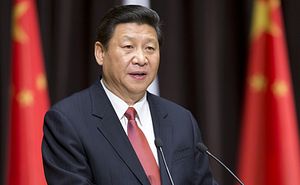As China’s anti-corruption campaign deepens, there are also some widespread misconception about it, both within China and abroad. Correcting such misconception will help us better understand the logic behind Xi Jinping’s recent moves, particularly with regard to the question of when real reforms may occur in China.
The first misconception about China’s anti-corruption campaign is that it will stop soon. With the recently announced decision to bring Zhou Yongkang down, a number of commentators believe that China’s anti-corruption will stop soon or at least in the near future (here and here). This is incorrect. Actually, China’s anti-corruption will not and should not stop now. Why? As one interesting article from People’s Forum points out, there might be a joint counter-attack by several big “tigers” in opposition to anti-corruption forces, leading to a possible stalemate. If the anti-corruption campaign stops now, all the achievements so far will be destroyed as both flies and tigers will come back soon. Also, Xi Jinping vowed to continue the anti-corruption campaign despite risking his personal reputation and even safety. His strong words mean that China’s anti-corruption campaign will be a long term one, no matter how many big tigers remain free within China’s system.
The second misconception about China’s anti-corruption campaign is that it is a power struggle between different factions of the Party. This view is increasingly less popular as more and more people realize that Xi Jinping is a different kind of leader than his predecessors. As one recent article points out, “Xi identified himself strongly as a member of the princeling group and saw it as his mandate and mission to revive the party, whose ruling bases have been eroded by rampant corruption and bureaucracy.” In a way, Xi’s anti-corruption campaign is about power because those who are in power now strongly oppose Xi’s reform agenda. To be able to push for reforms, Xi Jinping must first consolidate power in his hands. More importantly, Xi installed some of his own people to important positions, not for personal gain but for the purpose of reform since his current push for necessary reforms has been met with strong resistance from certain actors with vested interests.
The third misconception about China’s anti-corruption campaign is that it is only about corruption and not about other more fundamental reforms (here and here). This is also a serious misunderstanding. In China, reforms must be implemented in a carefully designed manner so that they can take place smoothly and gradually. Xi Jinping was wise to emphasize early on in his tenure that China should avoid “irreversible and fundamental mistakes (颠覆性错误),” meaning policies on the extreme left and extreme right. It is possible that from the Party’s perspective, the right order of reforms should be: first anti-corruption, then economic reforms, social reforms, governance reforms, and finally political reforms. And here political reforms do not necessarily mean Western-style political reforms, which is what many Western commentators mistakenly assume when interpreting Chinese politics. It is important not to use Western standards of measuring political reforms such as rule of law, checks and balances, and so on to judge China’s political reforms. Doing so would commit the mistake of historical linearity. China eventually will move to a democracy, it’s just that it will be a unique model of democracy and different from the Western model.
The fourth misconception about China’s anti-corruption campaign is that it will hurt China’s economic growth. Although there seems to be a correlation between China’s recent economic slowdown (particularly the housing market and restaurant industry) and the anti-corruption campaign, one needs to keep in mind that correlation is not causation and the anti-corruption campaign will actually be beneficial to China’s long term growth. As one Chinese economist points out, the anti-corruption campaign can bring three benefits to China’s economic growth: 1) it increases ordinary citizens’ welfare because of a relative increase of status; 2) it can contribute to a more mature market economy; and 3) it can help China avoid the so called “middle income trap” that has plagued many other developing countries.
As Professor Zheng Yongnian of the National University of Singapore correctly points out, today China’s anti-corruption campaign has a new political meaning. It is about much more than just anti-corruption; it is about rebuilding legitimacy and China’s political structure. Those who remain skeptical about China’s anti-corruption campaign need to realize their own blind spots in analyzing Chinese politics. In particular, we need to understand China from China’s perspective, not the Western perspective.

































